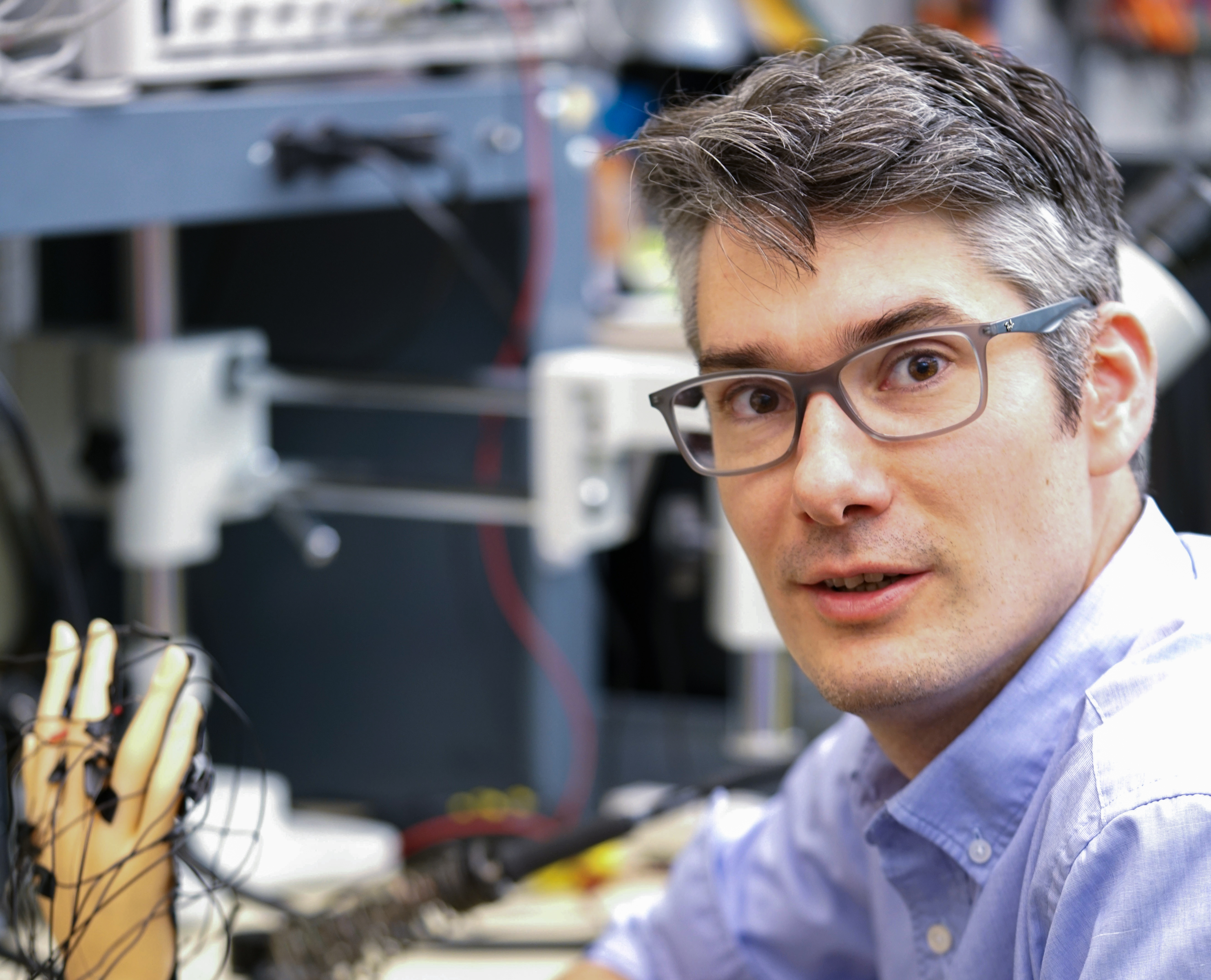Bosch and CMU focus on how virtual and physical worlds interact
Oct 25, 2021

Source: College of Engineering
Future computing in industrial environments is likely to include a tight coupling between the real world and digital content that enhances the real-world experience. Through a combination of technologies such as augmented reality (AR), virtual reality (VR), and extended reality (XR), this area of research known as spatial computing will change the interaction between the physical and digital worlds through the overlay of virtual content on top of physical environments.
Today, Bosch in North America announced a new collaboration with Carnegie Mellon University (CMU) to further research in spatial computing. As part of the collaboration, Bosch Research will invest $3 million in a joint research effort with CMU, and Anthony Rowe will join Bosch as part of the Bosch Research team, where he will serve as chief scientist. Rowe is currently the Siewiorek and Walker Family Professor in CMU’s Electrical and Computer Engineering Department. He is a renowned expert in the field of embedded systems, and his research has focused on localization, spatial computing, and networked real-time systems for sensing and control applications.
“While the vision for spatial computing is promising, the reality is that these complex applications are difficult to create and remain largely decoupled from the physical world,” Rowe said.
The goal of the international team is to design and demonstrate an architecture for XR applications in the Industrial Internet of Things (IIoT) context designed around safety, reliability, and real-time performance.
“The Bosch Research and Carnegie Mellon collaboration in the area of spatial computing will examine how to better enable blended virtual and real-world applications in areas such as industrial and mobility,” said Thomas Kropf, president, Bosch Research and Advance Engineering. “This is an important step to further strengthen the longstanding international collaboration with Carnegie Mellon and to advance the central field of spatial computing.”
Together, Bosch and Carnegie Mellon will conduct research related to the industrial applications of spatial computing and the use of tools such as safe and real-time digital twins in manufacturing. This would include examining how an XR-instrumented factory of the future could have workers, machines, and manufactured elements all with a digital counterpart.
“A broad range of new infrastructure and tools are needed to reach the level of robustness required to truly shift VR, AR, and XR from advertising and entertainment to standard practice in the industrial domain,” said Christopher Martin, director of the Bosch Research and Technology Center in Pittsburgh.
Combined Industry 4.0 and digital twins expertise
Bosch is a leading player in Industry 4.0 and IIoT applications as the company has demonstrated with factory of the future concepts and application of AI and data science in its factories around the world. New Bosch factories such as the semiconductor plant in Dresden have digital twins, and Industry 4.0 products from Bosch such as the new control technology ctrlX Automation provide customers with various different ways of using digital twins.
Meanwhile, Rowe has been a key part of the Carnegie Mellon Augmented Reality Edge Networking Architecture (ARENA), a unique networking platform designed by the Semiconductor Research Corporation (SRC)-sponsored CONIX Research Center with the goal of making mixed-reality digital twin systems easy to program.
Carnegie Mellon has also built a digital twin for the Mill 19, which is known for its historic role as one of the Pittsburgh region’s most productive steel mills and has now been transitioned into a collaborative innovation space for the Manufacturing Futures Institute and the non-profit Advanced Robotics for Manufacturing (ARM).
Bosch and CMU continue collaboration on technology research
The collaboration is the latest in a longstanding relationship between Bosch and Carnegie Mellon. In 1990, a major gift from the Bosch Group established the Carnegie Bosch Institute (CBI), a unique alliance between Bosch and Carnegie Mellon where research focuses on topics of innovation at the intersection of business and technology, particularly the increasingly connected world and Internet of Things (IoT).
In 2015, Bosch established the Bosch Distinguished Professorship in Security and Privacy Technologies, also known as the Bosch Chair, at Carnegie Mellon to support security and privacy research. The Bosch Chair, currently held by Professor Lorrie Cranor, serves as the director of the Carnegie Mellon CyLab, a security and privacy research institute that brings together experts from across the university, encompassing the fields of engineering, computer science, public policy, information systems, business, humanities and social science.
Previously, Bosch Research and Carnegie Mellon established a similar arrangement where a Carnegie Mellon professor joined the Bosch staff. Zico Kolter, associate professor in the Computer Science Department with the School of Computer Science, joined Bosch in 2018 as the chief scientist for artificial intelligence, which coincided with the launch of the Bosch Center for Artificial Intelligence (BCAI) Research Lab in Pittsburgh.
